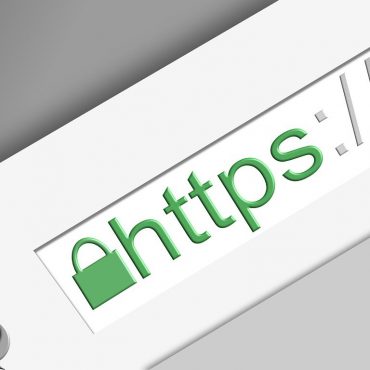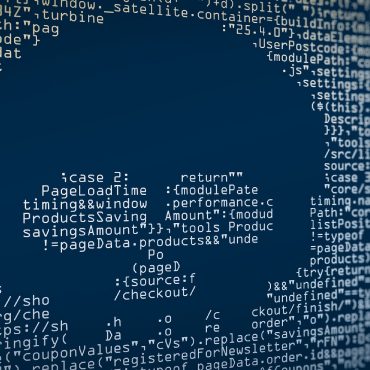What is Web Security?
What exactly is web security? In very basic terms, web security basically refers to the defensive measures and methods that organizations adopted to protect the business from, external threats and cyber criminals who make use of the internet channel as their mode of procuring resources. Web security is very critical to company integrity and to safeguarding companies, users and information from being compromised. This line of defense protects the business by detecting, preventing and then eliminating malicious online activities. It aims to deny penetration of viruses, spyware, malware and other online threats that are meant to disrupt or damage business processes, systems and information. When it comes to web security, today there is no more time to waste.

Today, companies are facing a variety of hack attacks and other vulnerabilities and thus have to look for web security solutions to thwart these external attacks. The biggest challenge that facing organizations today is that of hackers and these hackers are becoming more sophisticated. Some of the ways they try include, scanning websites for vulnerabilities, monitoring and tracking web traffic, accessing company databases and files, intruding and vandalizing machines used in network infrastructure and so on. As already mentioned earlier, it is quite difficult for organizations to find out if a hacker has penetrated their system because most of these attacks take place via covert means and this is why web security solutions prove to be highly useful.
The most common way through which organizations are attacked is through malware attacks and viruses. Malicious online attacks usually come from attackers who rely on sophisticated tools and techniques for extracting confidential information, monitoring web traffic and carrying out sabotage and attacks on various systems. This enables them to gain access to organizations’ confidential data and also to obtain and use companies’ assets and systems. Web vulnerabilities allow attackers and hackers to bypass typical layers of security that are present on websites.
Web vulnerabilities can be prevented by using strict firewalls and by regularly updating your antivirus and web filtering applications. Some of the other web security threats include phishing attacks and hacker attacks. A phishing attack is when a hacker tricks users into opening a link or a bogus e-mails in order to steal their personal details.
Hackers are also trying to gain access to a website through web vulnerabilities by using techniques like injection, cross-site scripting and programming. Injection is when attackers to infiltrate your website through an HTML page. Cross-site scripting is where attackers attempt to create user interaction issues on another website so that they gain access to personal and financial information. Programming is used in order to carry out online activities which may include the installation of programs on computers.

In addition, some of these malware attacks may also be done through a web security gateway. A web security gateway is a special server that allows web traffic between two different networks to pass through an encrypted tunnel. Most of these security measures are designed to prevent hackers from accessing your website. For instance, you can prevent attackers from accessing your website through a web security gateways by installing firewalls that block the ports that attackers use to connect to your website. Apart from security gates, you should also keep your computer and internet usage free of any malware infections so that you are not affected.
Apart from web application security solution, it is very important for you to keep your computer and internet usage free from malicious objects. You can do this by removing all software that could install a malicious Trojan horse or any other virus into your computer. Removing malicious software will not be enough as all these malicious objects are designed to track your online activities. You should also be very careful when downloading files or uploading them to your computer so that you do not infect your computer further.
Some of these web vulnerabilities are SQL injection, XSS and PHP cross-site scripting. If you find any vulnerability in a web application, you should try to identify the SQL injection vulnerability first as this is the most common vulnerability among the majority of the common vulnerabilities. In the SQL injection vulnerability, the hacker has to insert a SQL code inside a web page. For instance, if a user types a password in a web page of an application such as Microsoft Word, the vulnerability is exploited and the hacker gets access to the password file stored in the database of the system and can change the password of the user. You can use free website malware scanner for that offered by free website scan.

How web security protects your website
Your computer is part of your home and the web is an extension of your home. You have all of your information at your fingertips on the Internet and need to know how web security works in this ever-changing environment. While you may not think about it, the security on your computer can be just as important as the security of your home and property. You do not want to leave any detail out, because that little detail could mean the difference between a safe transaction and one that is not. Keep reading to see what the basics of web security are.
The first rule of web security is to never transmit personal or financial information over the Internet. There are many ways for a hacker to get into your computer and use that information. There are programs that will steal your cookies, or small pieces of information that your browser automatically turns into data that is sent when you visit another site. There are even programs that can steal your IP address or log keystrokes so that the hackers can obtain credit card numbers or other sensitive information.

The second rule of thumb is to always have a firewall that will prevent your website from being attacked from the outside. This will protect you from the attacks from other websites that can come across your site without you knowing. Some free firewall programs are available, but you should also take advantage of those that are paid to protect your website.
Another way that a hacker can get into your computer is if you visit a site that is infected with spyware or virus. These types of programs can steal information from your computer without your knowledge, such as your usernames and passwords. In fact, there are some sites that can scrape your personal information and sell it online to spammers or other criminals who use it for illegal activities such as identity theft. When you visit these sites, you should always scan your computer for any infections or malware before visiting or using any information they may have stolen from you.
However, you may also need more than protection when you are online. You should also protect your computer from being infected in the first place. For instance, you should have an anti-virus program that updates itself automatically. This way, whenever there is an update available, your computer will be protected. In addition to installing an anti-virus program, you should make sure that you regularly back up important information, so that in the case of a disaster, you will be able to recover your files.
Finally, when you are online, do not put your personal or confidential information on your website. Even though you are using secure sites, you still need to protect yourself. Before you publish any sensitive information, make sure that you check it twice and call your computer provider to make sure that your information is secure. Once you’ve made sure that everything is secure, you will be able to look at how web security protects your website. If you find the vulnerabilities in your website you can use our hack protection’s virtual patching services to patch all the things to make your website safe.

Importance of Website security
Web security is now a big concern not just in the online marketing landscape but in the corporate world as well. You simply can’t compete against cyber criminals unless you’ve got effective web security in place. And even today, with so many security measures already in place, you still need to ensure the protection of your website. The reality is that cyber criminals are constantly improving their hacking skills and sharpening their knives to cause maximum damage. That’s why it’s essential for web companies to maintain a robust web security strategy if they want to protect their company from hackers.
The importance of web security can never be stressed enough. After all, your website acts as the lifeblood of your business. Without an effective digital marketing strategy, it can lead to a lot of losses, a fact that you need to take note of. So, when you talk about web security, you should always keep this in mind. There are some very practical tips that can help you secure your website and keep hackers at bay.

Let’s face it: you don’t want to find out that you were a victim of a cyber attack only to discover that your website is not protected and that you are in serious trouble. When it comes to effective web security, there are many people that will testify that the best form of defense is to do it in advance. By getting informed before a cyberattack happens, you can prevent it from happening to you and your company. So, how do you make sure that your marketing efforts are not hampered by a cyberattack?
In many cases, companies will only realize the importance of web security after it’s too late. For example, say that you have a site that sells products and services related to computers. The cybercriminals can easily access your site and upload your personal information as well as your products and services. Once they have done this, then your personal information can go on the black market. This means that the cybercriminals can do serious damage to your business before you even realize it. For example, if the cyberattack happened while you were online, then you might lose all of the digital marketing efforts you had made for the past few months just because the cyber criminals got in before you could.
Another example is the so-called social media attacks. As we all know, social media has been one of the most effective tools used by cyber Criminals to spread their malicious programs. In most cases, this can be done simply through social media attacks by sending spam emails and messages to millions of people. If the spam emails are forwarded from one person to another, then the whole network will be vulnerable. This is the reason why people should create strong passwords for their social media accounts and also change them every now and then so that they cannot be hacked.

When it comes to web application security, it is not enough to set up a simple web application security plan. A web application security plan should include all the details needed in order to fight against cyber attacks. You need to find out what applications are vulnerable and what kind of cyber attacks are common. You need to put together a comprehensive web application’s security plan.
Finally, we should understand that personal information is one of the most targeted by hackers. Many companies have hired hackers to access confidential customer information and use it for various scams. This is why it is very important to make sure that your website is secured. In addition to this, we should also make sure that we are not sharing information about our personal information with anyone. Hackers can use this personal information to hack into different websites and gain unauthorized access to their customer’s information and other sensitive data.
Benefits of using website security
The benefits of using web security services are many. In today’s world, threats to websites are more intense than ever before. With each day that passes without a firm remedy in place, the number of Internet threats increases. There are many different types of threats to websites and using the protection provided by security services can help prevent them from being exploited.
By providing a firm line of defense against these various attacks, security services are able to prevent their clients’ information from being stolen. Without the protection that these services provide, a company’s information would be very easy to steal. By offering advice on how to avoid the most common ways a thief could take advantage of a website’s information, the businesses that use their services to get the best value for their money. These services also keep a company’s data secure at all times.

Most people believe that a firm solution to security issues is expensive, but the truth is that it doesn’t have to be. There are plenty of low cost web security services that are affordable for anyone. This is thanks to the advent of new technology and the increasing popularity of web-based security measures.
In today’s economy, security services are usually the first to take a hit in cost thanks to the economic downturn. However, there are ways to reduce the price of security services while still maintaining high levels of protection. For example, many security companies offer discounts to companies that utilize their service in their own network. By reducing the risk of having the company’s information is stolen, this is a low cost option for any business.
Along with making security a low cost option, another way to reduce costs is to bundle a number of services together into one package. For instance, by taking advantage of bundle packages offered by various web security vendors, an internet safety company can get a variety of benefits for a relatively modest monthly fee. These include scanning websites for virus and spyware protection, adding in a content filtering tool, as well as monitoring activity on a website for updates or activity. With all of these features in one package, it can often save an internet user a significant amount of money. Additionally, businesses can benefit from using a bundle package because it can help them protect multiple websites at the same time.

Another of the many benefits of using web security services is the added protection of a company’s information. With a robust security plan in place, a business can feel confident that the website itself will be safe from hackers. This is because a reputable company will have a number of security measures, such as firewalls and other programs that will block out these types of attacks. The company’s information will also be protected thanks to the programs that will track online usage.
Protection of a company’s information is important because it is the company’s information that will be at risk if a hacker gets into the website. Even the most vigilant efforts to protect a website with the most up to date software will not keep hackers from taking advantage of the latest security holes. By using a web security company’s services, an Internet user will feel comfortable that the company’s information is being protected and is able to visit the website without worrying about becoming a victim of a cyber attack. By providing such high quality protection, a company will be able to ensure that its clients’ websites are kept secure and can continue to provide their customers with high quality products and services. Therefore, a company that wishes to grow and expand will do well to look to secure their websites in order to provide the best services possible.
Lastly, web security services offer convenience. While there may be a variety of benefits of using these services, one of the biggest is the fact that it can help a business to save time and money. For example, instead of having to hire additional staff members, the time and cost of training them can be used for more important endeavors. Additionally, using the services will allow a business to provide its customers with the same high quality service as it currently offers, but at a reduced cost. In today’s tough economic environment, every business needs to be competitive in their services and those who can provide this service at a lower cost will do the most good for their company.



















Post comments (0)